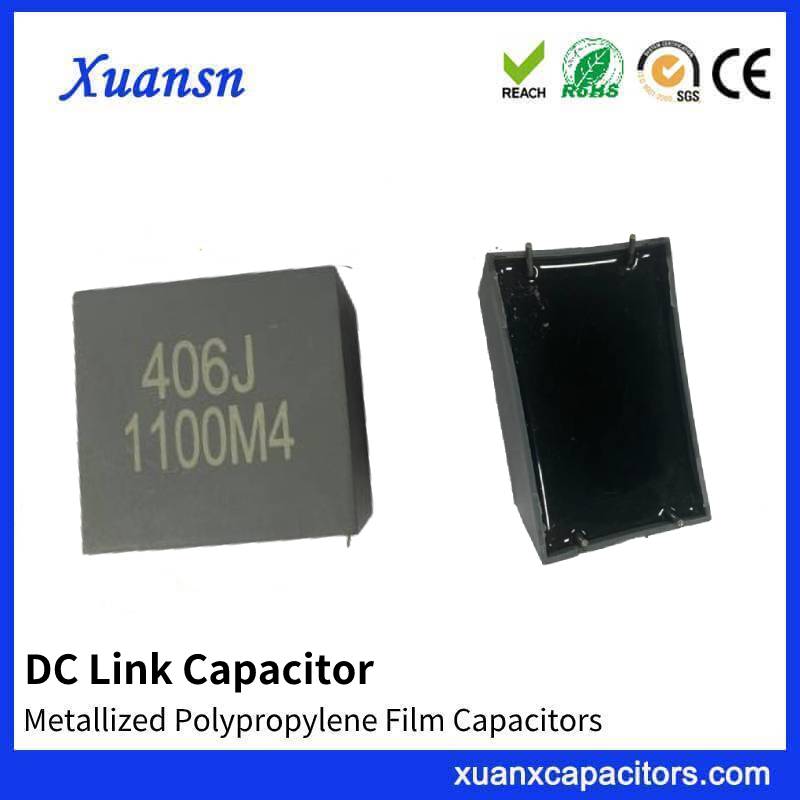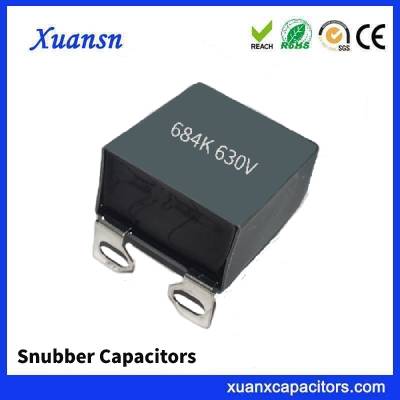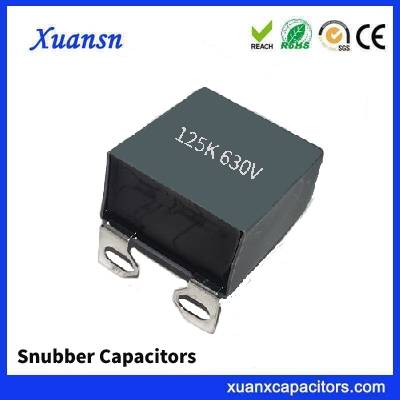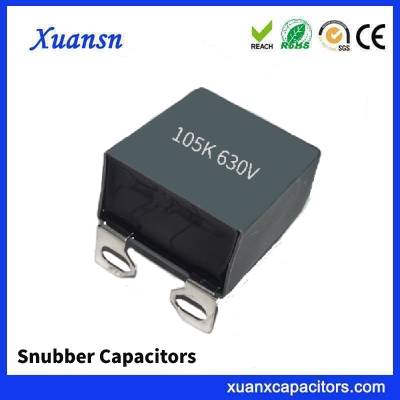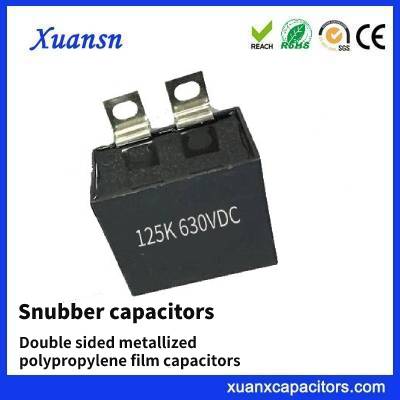- High Capacitive Density
- High Ripple Current
- Low Loss
- High Reliability
- XUANSN manufacturer
DC Link Capacitor 406J 1100V MKP Polypropylene Film Battery Charger
Description
DC Link Capacitor Introduction:
Welcome to our product page highlighting the versatile and indispensable DC Link Capacitor. As a vital component in power electronic systems, DC Link Capacitors play a crucial role in enabling efficient energy transfer, voltage stabilization, and ripple reduction. In this article, we will delve into the definition, structure, characteristics, advantages, disadvantages, and applications of DC Link Capacitors, shedding light on their significance in modern electronic devices and machinery.
DC Link Capacitor Definition:
DC Link Capacitor, also known as DC bus capacitors, are passive electronic components designed to store and release electrical energy in direct current (DC) applications. They provide a low-impedance path for the flow of energy, allowing for smooth voltage regulation and suppression of ripple currents.
Structure:
DC Link Capacitor typically consist of two conducting plates, known as electrodes, separated by a dielectric material. The electrodes are made of highly conductive metal films, such as aluminum or metallized polypropylene, while the dielectric material provides insulation between them. The construction may vary depending on the specific capacitor type and intended application.
Characteristics:
- Capacitance: DC Link Capacitor are available in a wide range of capacitance values, allowing for precise tuning and adaptation to different voltage and energy storage requirements.
- Voltage Rating: They are designed to withstand specific voltage levels to ensure reliable and safe operation within the intended system.
- Ripple Current Handling: DC Link Capacitors exhibit excellent ripple current handling capabilities, minimizing voltage fluctuations and maintaining stable power delivery.
- Low ESR and ESL: With low Equivalent Series Resistance (ESR) and Equivalent Series Inductance (ESL), these capacitors contribute to high energy efficiency and reduced power losses.
- Self-Healing Properties: Certain DC Link Capacitors possess self-healing characteristics, enabling them to recover from minor dielectric breakdowns and ensure extended lifespan.
Advantages:
- Energy Storage and Regulation: DC Link Capacitors efficiently store energy and provide a stable voltage source, contributing to the reliable operation of power electronic systems.
- Ripple Current Suppression: They effectively reduce the ripple currents generated by switching devices, improving system performance and minimizing electromagnetic interference.
- Improved Power Quality: By stabilizing voltage levels, DC Link Capacitors enhance power quality, reducing the risk of voltage spikes and dips that can damage sensitive components.
- Compact Design: These capacitors offer a high capacitance-to-volume ratio, allowing for compact and space-efficient designs in various applications.
- Longevity: High-quality DC Link Capacitors have robust construction and can endure frequent charge-discharge cycles, ensuring a long service life.
Disadvantages:
- Limited Energy Storage: DC Link Capacitors have a finite energy storage capacity, which may restrict their use in high-power applications or systems requiring prolonged energy supply.
- Voltage Rating Limitations: Capacitors must be carefully selected to match the voltage requirements of the system, as exceeding their voltage rating can lead to catastrophic failures.
- Temperature Sensitivity: Extreme temperatures can impact the performance and lifespan of DC Link Capacitors. Appropriate cooling measures are often required to maintain optimal functionality.
Applications:
- Power Electronics: DC Link Capacitors are extensively used in power conversion systems, such as inverters, motor drives, and uninterruptible power supplies (UPS), ensuring stable DC voltage levels and efficient energy transfer.
- Renewable Energy: They find application in renewable energy systems, such as wind turbines and solar inverters, to store and regulate energy generated from intermittent sources.
- Electric Vehicles (EVs): DC Link Capacitors play a vital role in EV powertrains, smoothing out the power flow between the battery and the electric motor, enhancing efficiency, and reducing voltage fluctuations.
- Industrial Automation: DC Link Capacitors are employed in industrial automation systems, where they help stabilize power supply and reduce ripple currents generated by motor drives, ensuring reliable and smooth operation.
- Railway Systems: DC Link Capacitors are utilized in railway applications, including locomotives and train control systems, to maintain stable voltage levels and mitigate voltage spikes caused by regenerative braking.
- Energy Storage Systems: DC Link Capacitors are integrated into energy storage systems, such as batteries and supercapacitors, to manage energy flow, regulate voltage, and improve overall system efficiency.
- High-Frequency Power Supplies: They are used in high-frequency power supplies, such as those found in telecommunications and data centers, to stabilize voltage and reduce noise interference.
- Hybrid Power Systems: DC Link Capacitors play a crucial role in hybrid power systems, combining multiple energy sources such as batteries, fuel cells, and solar panels, to store and regulate energy flow.
Conclusion:
DC Link Capacitors serve as vital components in a wide range of applications, offering energy storage, voltage stabilization, and ripple suppression capabilities. Their compact design, improved power quality, and longevity make them essential for modern power electronic systems, renewable energy solutions, industrial automation, and various other fields. While considering their limitations, such as energy storage limitations and temperature sensitivity, proper selection and integration ensure optimal performance and longevity. Choose high-quality DC Link Capacitors to enhance the efficiency and reliability of your power systems.
Contact Us
For 19 years, we have focused on creating value for capacitor companies and providing customers with better services.
Error: Contact form not found.
